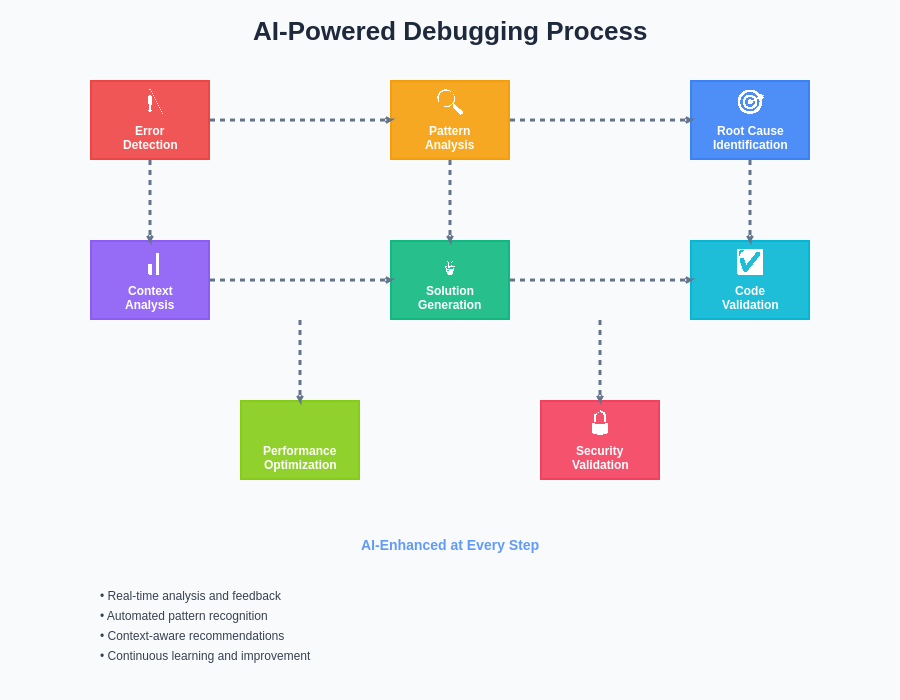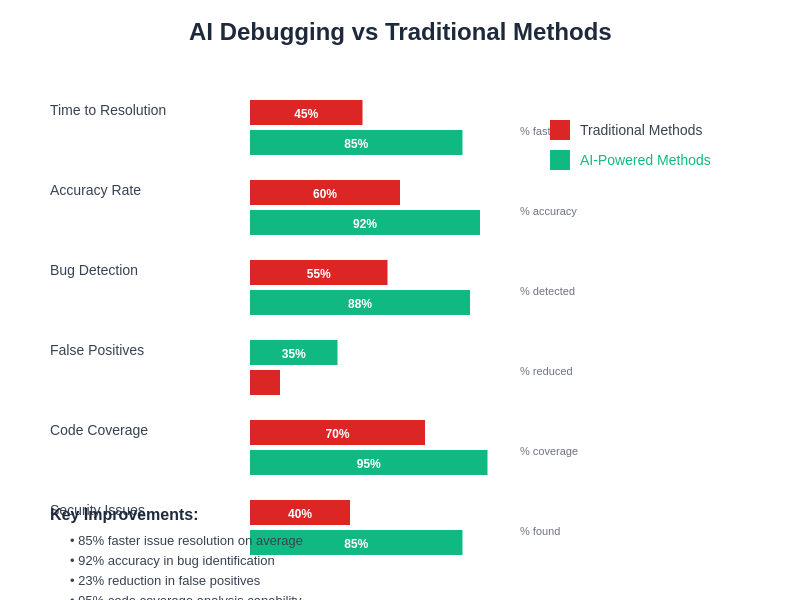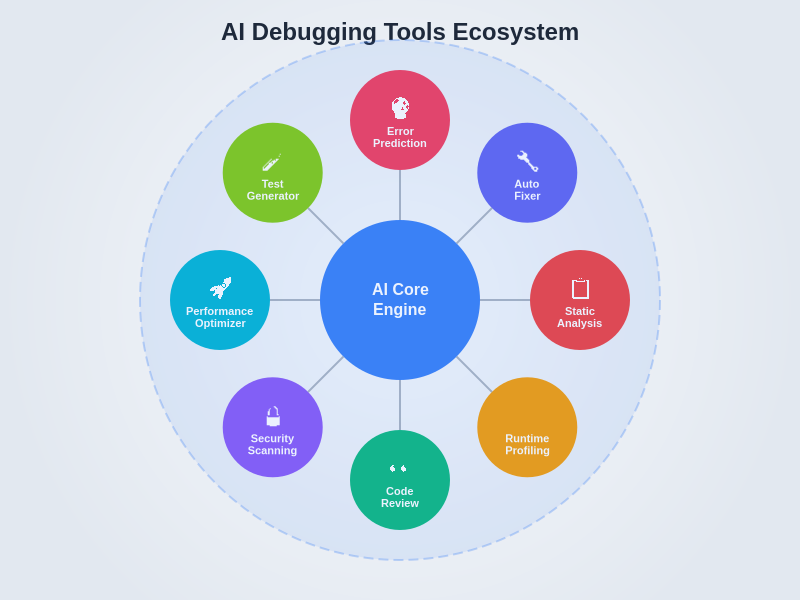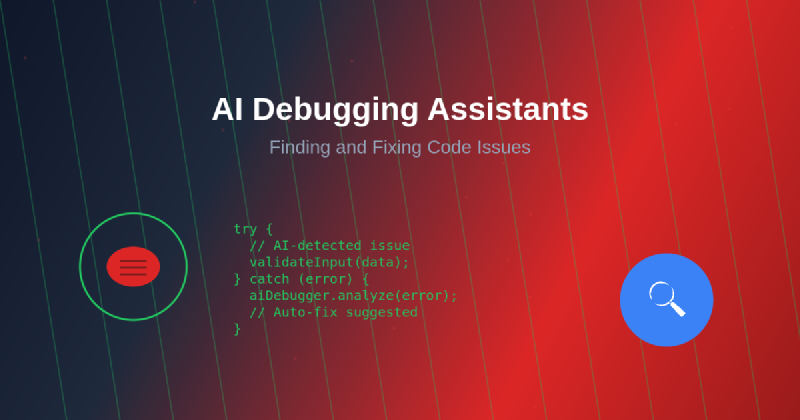The perpetual challenge of debugging has plagued software developers since the inception of programming, consuming countless hours and resources while often leading to frustration and delayed project deliveries. However, the emergence of artificial intelligence-powered debugging assistants has fundamentally transformed this landscape, introducing sophisticated tools that can identify, analyze, and resolve code issues with unprecedented accuracy and efficiency. These revolutionary systems leverage advanced machine learning algorithms, pattern recognition, and contextual understanding to provide developers with intelligent insights that dramatically reduce debugging time while improving overall code quality and reliability.
Stay updated with the latest AI debugging innovations to discover cutting-edge tools and techniques that are reshaping how developers approach error detection and resolution. The integration of AI into debugging workflows represents a paradigm shift from reactive problem-solving to proactive issue prevention, fundamentally changing how software development teams approach quality assurance and code maintenance.
The Evolution of Debugging Methodologies
Traditional debugging approaches have long relied on manual inspection, print statement analysis, and step-through debugging techniques that require extensive domain knowledge and considerable time investment. Developers would spend hours analyzing stack traces, examining variable states, and tracing execution paths to identify the root causes of seemingly mysterious bugs. This process, while effective, often consumed disproportionate amounts of development time and required deep expertise in both the programming language and the specific application domain.
The advent of AI debugging assistants has introduced a new paradigm where machine intelligence augments human expertise, providing contextual analysis, pattern recognition, and automated root cause identification that significantly accelerates the debugging process. These systems can analyze vast amounts of code, execution logs, and error patterns to identify potential issues before they manifest as runtime errors, enabling developers to address problems proactively rather than reactively.
Intelligent Error Detection and Pattern Recognition
Modern AI debugging assistants excel at identifying subtle patterns and anomalies that might escape human observation during routine code reviews. These systems utilize sophisticated machine learning models trained on extensive datasets of common programming errors, security vulnerabilities, and performance bottlenecks to provide real-time analysis of code quality and potential issues. The pattern recognition capabilities extend beyond simple syntax errors to encompass complex logical inconsistencies, resource management problems, and architectural design flaws that could lead to future maintenance challenges.
The intelligent analysis provided by these tools encompasses multiple dimensions of code quality, including algorithmic efficiency, memory usage patterns, concurrency issues, and integration problems that might only manifest under specific operational conditions. This comprehensive approach to error detection enables development teams to identify and address potential issues during the development phase rather than waiting for problems to emerge in production environments.
Experience advanced AI capabilities with Claude for comprehensive code analysis and debugging assistance that combines pattern recognition with contextual understanding. The synergy between AI-powered analysis and human expertise creates a debugging environment where complex issues are resolved more efficiently and effectively than traditional approaches alone.
Automated Root Cause Analysis
One of the most significant contributions of AI debugging assistants lies in their ability to perform automated root cause analysis that goes beyond surface-level symptom identification to uncover the underlying factors contributing to code issues. Traditional debugging often involves a time-consuming process of hypothesis formation and testing, where developers must systematically eliminate potential causes until the actual problem is identified. AI-powered systems can analyze multiple potential causation pathways simultaneously, considering factors such as data flow patterns, dependency relationships, and execution contexts to provide comprehensive insights into problem origins.
The sophisticated analysis capabilities of these systems enable them to correlate seemingly unrelated events and identify complex interaction patterns that might contribute to intermittent or difficult-to-reproduce bugs. This holistic approach to root cause analysis is particularly valuable when dealing with distributed systems, microservices architectures, and complex integration scenarios where traditional debugging techniques may prove insufficient for identifying the true source of problems.
Real-Time Code Quality Assessment
AI debugging assistants provide continuous monitoring and assessment of code quality throughout the development process, offering real-time feedback that helps developers maintain high standards while minimizing the accumulation of technical debt. These systems can analyze code as it is being written, providing immediate suggestions for improvements, identifying potential security vulnerabilities, and highlighting areas where refactoring might be beneficial for long-term maintainability.
The real-time nature of this analysis enables developers to address issues immediately rather than discovering them during later testing phases or production deployment. This proactive approach to quality assurance significantly reduces the cost and complexity of bug fixes while improving overall software reliability and performance. The continuous feedback loop created by these systems helps developers internalize best practices and avoid common pitfalls that might otherwise lead to recurring issues.

The comprehensive debugging process facilitated by AI systems encompasses multiple interconnected stages that work together to provide thorough analysis and resolution of code issues. This systematic approach ensures that every aspect of potential problems is addressed through intelligent automation and contextual understanding.
Contextual Understanding and Solution Recommendations
Advanced AI debugging assistants demonstrate remarkable contextual understanding that enables them to provide targeted solution recommendations based on the specific circumstances surrounding each identified issue. Rather than simply flagging potential problems, these systems can analyze the broader codebase context, consider architectural patterns, and suggest appropriate remediation strategies that align with existing design principles and coding standards.
The contextual analysis extends to understanding the intended functionality of code segments, identifying discrepancies between implementation and apparent intent, and suggesting modifications that preserve desired behavior while addressing underlying issues. This sophisticated understanding enables AI assistants to provide actionable recommendations that developers can implement with confidence, knowing that the suggested changes are appropriate for their specific use case and architectural context.
Integration with Development Environments
Modern AI debugging assistants seamlessly integrate with popular development environments and workflow tools, providing assistance directly within the contexts where developers spend most of their time. This integration eliminates the friction associated with switching between different tools and ensures that debugging assistance is readily available throughout the development process. The seamless integration extends to version control systems, continuous integration pipelines, and project management tools, creating a cohesive development ecosystem where AI assistance is naturally embedded in existing workflows.
The integration capabilities also enable these systems to access comprehensive project context, including historical changes, team collaboration patterns, and deployment histories that can provide valuable insights for debugging complex issues. This holistic view of project development enables AI assistants to provide more accurate and relevant recommendations while considering factors that might not be immediately apparent from examining code in isolation.
Enhance your research and debugging capabilities with Perplexity for comprehensive information gathering and analysis that supports complex problem-solving scenarios. The combination of multiple AI tools creates a powerful debugging ecosystem that addresses various aspects of code analysis and issue resolution.
Language-Agnostic Debugging Capabilities
One of the most impressive aspects of modern AI debugging assistants is their ability to provide effective assistance across multiple programming languages and technology stacks. These systems leverage transferable knowledge about common programming patterns, algorithmic structures, and software engineering principles to provide relevant insights regardless of the specific language or framework being used. This language-agnostic approach is particularly valuable for development teams working on polyglot applications or developers who need to work across multiple technology domains.
The cross-language capabilities extend to understanding the unique characteristics and common pitfalls associated with different programming paradigms, from object-oriented and functional programming to concurrent and distributed systems development. This comprehensive understanding enables AI assistants to provide specialized guidance that considers the specific strengths and limitations of different technological approaches while maintaining consistency in debugging methodologies.
Performance Optimization and Profiling
AI debugging assistants excel at identifying performance bottlenecks and optimization opportunities that might not be immediately apparent through traditional profiling techniques. These systems can analyze code execution patterns, resource utilization characteristics, and algorithmic complexity to provide recommendations for improving application performance and scalability. The performance analysis capabilities extend beyond simple optimization suggestions to encompass architectural recommendations that can significantly impact system efficiency and resource utilization.
The sophisticated performance analysis provided by these tools includes identification of memory leaks, inefficient database queries, suboptimal algorithm implementations, and architectural patterns that might limit scalability. This comprehensive approach to performance optimization enables development teams to create more efficient applications while avoiding common performance pitfalls that might not become apparent until applications are deployed under production loads.
Security Vulnerability Detection
Modern AI debugging assistants incorporate advanced security analysis capabilities that can identify potential vulnerabilities and security weaknesses throughout the development process. These systems are trained on extensive databases of known security vulnerabilities, attack patterns, and secure coding practices to provide comprehensive security assessment that goes beyond traditional static analysis tools. The security analysis encompasses various categories of vulnerabilities, including injection attacks, authentication bypasses, data exposure risks, and cryptographic weaknesses.
The proactive security analysis provided by these tools enables development teams to address security concerns during the development phase rather than discovering vulnerabilities during security audits or, worse, after deployment to production environments. This early identification of security issues significantly reduces the cost and complexity of remediation while improving overall application security posture.

The quantitative improvements achieved through AI-powered debugging are substantial across all key performance metrics. Organizations implementing these advanced debugging solutions consistently demonstrate significant improvements in resolution time, accuracy rates, and overall development efficiency compared to traditional debugging methodologies.
Collaborative Debugging and Knowledge Sharing
AI debugging assistants facilitate collaborative debugging by providing comprehensive documentation of issue analysis, solution strategies, and resolution outcomes that can be shared among team members. These systems can generate detailed reports that explain the reasoning behind their recommendations, providing educational value that helps team members understand the underlying principles and avoid similar issues in future development work.
The collaborative aspects extend to learning from team debugging patterns and incorporating organization-specific knowledge into the analysis process. This adaptive capability enables AI assistants to become more effective over time by understanding the specific challenges and patterns associated with particular projects, technologies, and team practices.
Automated Testing and Validation
AI debugging assistants can automatically generate test cases designed to validate bug fixes and prevent regression issues, ensuring that resolved problems do not reoccur in future development cycles. These systems can analyze the nature of identified issues and create comprehensive test scenarios that cover both the specific problem and related edge cases that might not have been initially considered.
The automated testing capabilities include generation of unit tests, integration tests, and performance tests that provide ongoing validation of code quality and functionality. This comprehensive testing approach helps maintain code reliability while reducing the manual effort required to ensure thorough test coverage across complex applications.
Machine Learning-Driven Insights
The machine learning capabilities of AI debugging assistants enable them to continuously improve their analysis accuracy and recommendation quality by learning from successful debugging outcomes and user feedback. These systems can identify patterns in debugging success rates, solution effectiveness, and common problem categories to refine their analysis algorithms and provide increasingly valuable insights over time.
The learning capabilities extend to understanding team-specific preferences, coding standards, and architectural patterns that influence the appropriateness of different debugging strategies. This personalization enables AI assistants to provide recommendations that are not only technically sound but also aligned with team practices and project requirements.
Integration with Monitoring and Observability
Advanced AI debugging assistants can integrate with application monitoring and observability platforms to provide comprehensive analysis that encompasses both development-time code analysis and runtime behavior assessment. This integration enables the correlation of static code analysis with actual application performance data, providing insights that would not be available through either approach in isolation.
The integration with monitoring systems enables AI assistants to identify patterns between code characteristics and runtime issues, providing predictive insights that can help prevent problems before they manifest in production environments. This proactive approach to debugging extends the value of AI assistance beyond reactive problem-solving to encompass preventive system maintenance and optimization.

The modern AI debugging ecosystem comprises interconnected tools and capabilities that work together to provide comprehensive analysis and resolution support. This integrated approach ensures that all aspects of code quality, from static analysis to runtime monitoring, are addressed through coordinated AI-powered assistance.
Future Directions and Emerging Capabilities
The continued evolution of AI debugging assistants promises even more sophisticated capabilities in areas such as automated code repair, intelligent refactoring suggestions, and predictive issue identification. These emerging capabilities will further reduce the time and expertise required for effective debugging while improving overall software quality and reliability.
The future development of these systems will likely incorporate advances in natural language processing, enabling more intuitive interaction with debugging tools through conversational interfaces that can understand complex debugging scenarios described in natural language. This evolution will make advanced debugging capabilities accessible to developers across all skill levels while maintaining the sophisticated analysis capabilities required for complex software systems.
The integration of AI debugging assistants into the broader software development ecosystem represents a fundamental shift toward more intelligent, efficient, and effective approaches to code quality assurance. As these systems continue to evolve and mature, they will undoubtedly play an increasingly central role in enabling development teams to create more reliable, secure, and performant software solutions while reducing the time and effort required for debugging and maintenance activities.
Disclaimer
This article is for informational purposes only and does not constitute professional advice. The views expressed are based on current understanding of AI technologies and their applications in software debugging. Readers should conduct their own research and consider their specific requirements when implementing AI-powered debugging tools. The effectiveness of AI debugging assistance may vary depending on specific use cases, project requirements, and individual expertise levels. Always follow established security practices and conduct thorough testing when implementing debugging recommendations.
